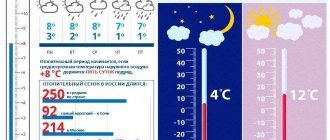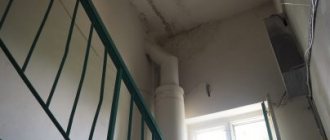Everyone wants their home to be warm and cozy. But if the creation of a pleasant psychological atmosphere is entirely in the hands of the residents themselves, then the microclimate of apartment buildings with centralized heating is controlled and provided by third-party organizations.
Heat is far from the cheapest expense item among other elements of the rent. It is all the more annoying when you have to allocate funds from the family budget for services that are not provided in the proper volume. What level of heat supply are utilities required to provide? How to achieve the required temperature in the apartment? Where should I go if the batteries are a little warm, and how can I do this to resolve the issue as quickly as possible?
What temperature in a living space are utilities required to provide?
The legislation has approved sanitary rules and regulations for almost all occasions. According to the developed documents, the following indicators have been established that service organizations are obliged to provide for residential premises:
- for rooms with external walls on both sides - corner ones - the temperature maintained by central heating should not fall below +20 °C;
- the same indicator has been approved for new buildings, no more than a year has passed since their commissioning;
- in all other cases, the room temperature should not fall below +18 °C, both in living areas and in the kitchen;
- for a bathroom, the lower limit of the norm will be higher - at +25 °C;
- on stairs and in lobbies - minimum +16 °C.
If the above standards are observed, any claims will be illegal, and even cold radiators at high heating rates will not be considered a reason for any action on the part of the organizations serving the building.
Possible reasons for filing complaints
Before taking any action because of a poorly heated room, you need to find out the scale of the problem. If the heating is turned off in the entire house, it is recommended to make a collective appeal. In addition, the following situations may be a reason for filing a complaint.
Complaint about low temperature or lack of heating in the apartment or individual rooms
If you suspect that the heating of the apartment is weak, i.e. below the established level according to SanPiN No. 2.1.2.2645-10 (with the latest changes and additions in 2021), you need to take independent measurements. This can be done by purchasing special devices or hiring independent experts. In the latter case, appropriate certificates should be requested. Based on the results of the work, a report is drawn up.
An employee of the management company must be present in the apartment while measuring the heating level. The organization should write about the upcoming event in advance.
Optimal and permissible air temperature in residential premises.
Common areas in the apartment building are not heated - entrances
You can complain about unheated public places, i.e. halls, entrances, utility rooms, on the basis of Article No. 36 of the Housing Code of Russia. According to the regulatory provisions, these areas of an apartment building are included in the list of common property subject to payment. Therefore, the management company is obliged to monitor the condition of the batteries and turn on the heating on them.
High temperature in living areas
GOST R 56501-2015 contains information about what level of heat in an apartment is considered normal. Thus, according to the document, radiators must heat the air within 18-25°C. Changes in temperature indicators depend on a number of factors:
- weather;
- season;
- room location;
- subjective feelings.
At the same time, systematically increasing the heating mode, leading to overheating, is just as dangerous as cooling. Since an excessively heated room provokes the proliferation of pathogenic environments, including mold. Fungus in an apartment has a negative effect on a person - depression, fatigue, imbalance of water and electrolyte balance - grounds for a complaint to the Criminal Code.
High pressure in the system - radiators and pipes break through
In accordance with SNiP 41-01-2003 (latest edition 2020), the pressure and temperature in the hot water mains in a closed system must be at a level so that the air in the room warms up to ~22°C. Relative humidity – 35-40%. The higher the apartment building, the greater the static pressure.
To ensure uniform rise of water in the pipeline, powerful pumping equipment is used. If the indicator increases excessively, there is a risk of a breakthrough on the internal highway. Therefore, if you suspect high pressure in the heating system, you should immediately file a complaint with the management company. The organization must stabilize the supply of the resource within 2 hours.
If the emergency situation is ignored, the service company will be responsible for poor-quality services that result in damage to the apartment or apartment building.
Inflated tariffs for heat supply
Indoor temperature in the warm and cold periods of the year.
Heating bills, as well as for other consumed resources, are compiled in a special database. The calculation is based on monthly figures. Receipts are generated automatically. Therefore, the possibility of error due to the human factor is almost eliminated.
Inaccuracies arise due to a failure in the system or a deliberate increase in the heat tariff. The owner of an apartment building can file an application with Roskomnadzor regarding a violation, as well as initiate a prosecutorial investigation if fraud is suspected.
Complaint about unwillingness to recalculate
Such a ground for complaint arises if the following factors occur:
- provision of poor quality service;
- overcharging;
- the contractor has disabled the supply of the resource.
An additional reason for filing an application for recalculation is a prolonged absence of heating in the residential premises.
Before contacting the management organization, you must prepare the following documents:
- heating payment receipts for a certain period;
- ask the management company for the apartment’s heat metering card;
- data on the square footage of the object, including residential and non-residential rooms of the apartment building.
To record the provision of inadequate quality of services, management companies or homeowners associations are required to conduct an inspection of the property.
What to do if the temperature in the apartment is below normal
Before making a claim to the management company, you need to make sure that the cause of insufficient heat in the house is a violation on the part of the utility service. It may not be the temperature of the water supplied to the radiators.
The result of such a check will determine where to apply. If the radiators in the apartment are cold through no fault of the utility services, you will have to call a specialist to carry out the work yourself, and most likely pay for his services out of your own pocket.
Possible causes of cold batteries
The most common causes of cold batteries during the heating season are technical malfunctions or temperature problems in the functioning of the entire supply mode. When it comes to a standard urban residential premises in a multi-storey building, the issues of heat provision should be dealt with by the housing and maintenance service (housing and maintenance service) or another authorized body. Before the onset of the heating season, representatives of the relevant services check the degree of preparedness of the entire building system for frost. In situations where a private house is being considered, responsibilities of this kind fall on the shoulders of the owner. If desired and if funds are available, he can contact specialized companies that carry out all work of this kind.
Possible causes of cold batteries and their characteristic symptoms:
- The presence of air pockets in the heating system - in such a situation the upper part of the battery will be cold;
- Technical faults outside the living area - a cold riser is considered a clear sign of such problems;
- The valves are closed and, as a result, the heating system is clogged - the riser is hot and the radiators are cold;
- Valves are not open enough, radiators are clogged, low coolant pressure in the pipes - the lower part of the radiator is very cold;
- Insufficient pressure, operating mode and system are not fully adjusted - only the last radiator in the system is cold;
- Technical clogging of a single battery, air lock, insufficient pressure - the part of the radiator farthest from the connection pipes is cold.
There may also be an incorrect connection of each of the elements and the entire operating mode as a whole. The above reasons can affect the operation of both a single battery and the functioning of the overall heating system of the building. Only after eliminating the identified temperature problems does it make sense to talk about complete and stable heating of each room.
If you sign direct contracts with private organizations that supply heating services, you will have to resolve the conflict yourself. Before signing, be sure to carefully review the terms of the contract. They may indicate actions that are recommended to be taken in the event of a complaint. This could be a special registered letter or contacting the main office directly.
General or specific problem?
The easiest way to evaluate the performance of a heating system is to touch not only the battery itself, but the pipes and the common riser. If it is hot, it may be a blockage inside the radiator or pipes connected to it that belong to only one apartment.
You can also ask your neighbors about the microclimate situation, and not just one - you should find out this point both from those with whom you have a common pipe (for example, living above or below you), and from those whose apartments are not connected to yours way. This will help determine the scale of the problem and, in certain cases, find helpers interested in solving it, as well as understand where to complain about cold batteries.
In the apartment, there may be no heating of all elements of the system or part of the pipes due to the accumulation of air in them, then they will be stably cold immediately from the beginning of the heating season. This issue does not require the involvement of third-party organizations, a large number of people and a long process of proving one’s rightness - only the intervention of the foreman of the housing and communal services branch servicing the house.
Liability if a utility service is disconnected illegally
Responsibility for illegal shutdown of heat supply may be of the following nature:
- Administrative. According to Article 7.23 of the Code of Administrative Offences. Violation of standards for providing the population with utility services entails the imposition of an administrative fine:
- for officials in the amount of five hundred to one thousand rubles;
- for legal entities - from five thousand to ten thousand rubles.
- Criminal. According to Article 215.1 of the Criminal Code of the Russian Federation, an official who was responsible for turning off the heat supply and this negligently resulted in the infliction of major damage, serious harm to health or other serious consequences is punished:
- a fine in the amount of up to two hundred thousand rubles or in the amount of wages or other income of the convicted person for a period of up to eighteen months;
- or restriction of freedom for up to three years;
- or forced labor for up to two years;
- or imprisonment for the same period.
The comfort of living in an apartment depends on how the heating system works and whether heat supply standards are met. On our website you will find articles about what are the rules of heat supply, standards for heating water in radiators of a heating system, rules for commercial metering of thermal energy, causes of noise in batteries, whether it is possible to install heat meters in an apartment, as well as what to do if the battery is leaking and who should repair and replace radiators and risers in apartments.
Probable causes of violation of heat supply standards
There are various possible reasons for the lack of heat in an apartment. Among them the most common:
- excessive wear and tear of the communication system;
- errors made at the design stage or during the installation of the system;
- incorrect adjustment of heat supply by an incompetent or negligent employee;
- unauthorized connection of neighbors to the centralized system (for example, incorrect installation of heated floors).
To identify the person responsible, you may have to use the help of lawyers, who you can contact for advice not only in person, but also on the Internet. In order to avoid unnecessary costs, it is better to do this in the event of any refusal, since reviews of those who have already encountered the problem indicate incompetence in this matter even among some representatives of the Supreme Court.
Who should be responsible for replacing or repairing unusable batteries?
How to find someone responsible for battery maintenance and repair?
Now that all readers of our resource understand who owns the heating radiators in apartment buildings and under what circumstances, we can also consider the procedures relating to their repair or replacement.
In fact, the situation in this matter is outrageously simple - whose battery is responsible for it, or rather, undertakes:
- repair and replace in a timely manner;
- monitor its condition in order to prevent emergency situations;
- when the latter occur, eliminate the resulting consequences (for example, compensate for material damage to residents below who suffered from a break in the old radiator).
It is worth noting that if the actual owner does not want to repair or change the faulty battery, his opponent in legal relations has every right to go to court, which will resolve all controversial issues.
When resorting to judicial debate on the “battery” issue in the MKD, it is important to take into account that the judicial body, when rendering a verdict, will focus specifically on the previously mentioned radiator valve. Therefore, if you are in a disadvantageous position, suing is not only pointless, but truly stupid.
This is largely due to the fact that the court verdict obliges the losing party not only to repair the battery, but also to reimburse all expenses of his opponent in legal proceedings that were incurred during the legal debate. Are you interested in this prospect? Most likely no.
Who is responsible for heating the apartment and supplying heat?
In addition to the nuances presented above, the “radiator” issue in MKD has one more feature.
It consists of the procedure for replacing batteries. Many apartment building residents are interested in whether they have the right to spontaneously hold this event or not?
We recommend: Controlling a gas boiler via a smartphone: the essence of innovative schemes for coordinating equipment operation at a distance
To better understand the essence of this procedure, let's look at the order of its implementation for two possible outcomes of events:
- The first option is the owner of the battery, the owner of the apartment. In this situation, the latter has every right to change radiators at his own discretion, but to carry out this procedure he must:
- Notify about future replacement of the Criminal Code;
- Coordinate with the expert the procedure, since making major changes to the configuration of the heating system of an apartment building, even in a separate apartment, requires obtaining a special permit from the government agency authorized in urban planning activities.
After carrying out the above measures, the owner of the apartment can carry out a replacement, naturally, at his own expense.
- The second option is that the battery is in common ownership and either the management company or the homeowners’ association is responsible for its operation. In this case, in addition to the previously presented measures, authorized persons must obtain written permission from the apartment owners to replace the radiator. The exception is situations when the battery is in poor condition and may burst at any time; in such circumstances, permission from the owners is not required.
As you can see, answering most of the questions that arise regarding “radiator” disputes in MKD is not so difficult if you know some of the legislative nuances of this topic. We hope the material presented above was useful to you. Good luck in defending your rights!
You can learn how to replace heating batteries by watching the video:
Watch this video on YouTube
Organizations responsible for the microclimate in residential premises
In the case where the temperature measurement showed a violation of the norms approved by law and there is reason to believe that the cause of this inconvenience is not of a private nature, it will be useful to know the organizations with which the issue of heat supply can be resolved.
Where to turn if the radiators in the apartment are cold? The first instance is the housing and communal services office that services the building. You can contact the management company or directly the organization that provides this service. Their representatives are obliged to respond to the complaint and analyze the situation.
To be completely sure that the problem will not be left unattended, it is better to make a written statement.
Is it possible to get a recalculation for heating?
The apartment should be heated, even if you do not live in it. Accordingly, you always have to pay for heating, regardless of whether people live in the apartment or not.
But if the house was not heated or was heated poorly, then it is possible to receive a recalculation of the payment. To do this, representatives of the management company or heating networks must officially confirm violations of the quality of heat supply in the report.
The cost of heating fees in case of poor quality services should be reduced by 0.15% per hour. At the same time, according to the standards, sometimes the heating can be turned off, the main thing is that the permissible duration of the heating interruption is not exceeded (according to clause 14 of section VI of the Appendix to the Decree of the Government of the Russian Federation of May 6, 2011 No. 354 “On the provision of utility services to owners and users of premises in apartment buildings and residential buildings"). Thus, a permissible one-time break:
- at an apartment temperature of 12-18 degrees it cannot last more than 16 hours;
- at 10–12 degrees - more than 8 hours;
- at 8–10 degrees – four hours.
At the same time, if the cause of cold batteries was an accident, the fee will not be recalculated. But the duration of emergency shutdowns during the heating season should not exceed 24 hours.
How to correctly file a claim for lack of heat in an apartment
To correctly indicate the recipient in the header of the application, you should find out the full name of the organization, its exact address, and the names of responsible managers. The name, address and contact details of the applicant are also indicated there.
It is necessary to make sure that the complaint will be considered and that they will not be able to remain silent - to do this, you need to ensure that the written statement is accepted and a note is made about this on the copy that remains with the tenant - they put down the so-called incoming number and the date of receipt of the complaint.
Directly in the text of the statement it follows:
- confirm your right to the service - refer to the concluded agreement with the organization, noting the conscientious fulfillment of the obligations assigned to it on your part (lack of debt);
- provide information about the fact of failure to provide the service in the proper amount and the period during which this violation was observed;
- indicate probable causes of system malfunction;
- provide temperature measurement data in the apartment;
- talk about the consequences of this incident, assess the moral and material damage caused by it.
In addition, it makes sense to determine the response time to the application (for housing and communal services representatives, a reasonable period is three days) and require notification of the actions taken in writing.
The application must be certified by the personal signature of the person making the claim.
If acceptance of the application was refused, it is necessary to send it by mail addressed to the responsible manager and always in a method of transmission that guarantees documentary information to the sender about the delivery of the document and its delivery to the addressee.
Confirmation receipts must be retained.
Statement of claim to court
Appeal to the court implies filing a claim at the location of the management company.
Important! The statement of claim must comply with the requirements established in Article 131 of the Civil Procedure Code of the Russian Federation:
- name of the court, plaintiff and defendant (legal entity: full name, legal address and contact information, individual: full name, address, contact information);
- content part. It describes the violations that were committed by the Criminal Code and the harm caused to the plaintiff;
- description of attempts to pre-trial conflict resolution;
- evidence of all circumstances indicating a violation of consumer rights;
- claims and amount of material damage;
- list of attached evidence;
- date and signature of the plaintiff.
Within five days, the statement of claim must be accepted for consideration, and the plaintiff is given a notice signed by the employee who accepted the claim.
When filing a claim in court, the plaintiff is required to pay a state fee of 300 rubles for consideration of the civil case.
ATTENTION! Look at the completed sample claim to court against the Criminal Code for heating quality:
Where to go if the radiators are a little warm, but there is no trust in local housing and communal services representatives
After submitting a claim, you can wait a week, unless cold weather and life circumstances (for example, the presence of small children or weak health members in the family) force you to act earlier.
If there is no proper response, such a complaint should be sent to a higher authority - the district housing inspection or Rospotrebnadzor. To the document it is necessary to add information about the actions taken previously, a copy of the first statement, reporting the lack of an appropriate response from the FSW.
In case of repeated silence, the next authority will be the prosecutor's office. The submitted complaint must be accompanied by documentary evidence of the futility of previous attempts to resolve the issue and provide information about the harm caused by the inaction of officials to residents of the apartment.
You can also go to court, but cases are not considered quickly and it is better to go there after resolving the main part of the issue, presenting a claim for compensation for material and moral damage.
Citizens faced with such difficulties often express the opinion that it is useless to contact the local housing and communal services, advising them to act immediately through higher-level authorities or send the original complaint to the management company, and at the same time copies to all other regulatory organizations.
Each case is individual, and it is impossible to make unambiguous prejudicial judgments about all organizations of this kind. The scale and intensity of action taken depends on many factors. How persistently and where to complain about cold batteries, what to do in a particular case - everyone decides for themselves.
Termination of heat supply by law
On the territory of the Russian Federation, shutdown of heat supply is regulated by Article 22 of the Federal Law “On Heat Supply” dated July 27, 2010 N 190-FZ, which regulates the norms for shutting off heat supply in the absence of timely payment of bills (how are heating charges formed?). Since heat supply is a public service, Government Resolution 354 can also be considered regulators.
How else can you fight for heat in a living space?
What to do if the radiators in the apartment are barely warm, and the responsible organizations are in no hurry to help solve the problem? You can begin to act more actively on your own, not limiting yourself to letters and waiting for a response to them.
- To begin activities to solve a problem, official confirmation that it exists is necessary. For this purpose, an act is drawn up. The commission, whose presence is required to create such a document, must include representatives of the local government, civilians from other apartments, and a competent craftsman - a housing and communal services mechanic. It is better to take charge of organizing this event by sending written requests to the necessary authorities containing a request for an examination and proposing a possible date for the inspection.
- If the request is ignored, the act can be drawn up without the participation of official government representatives. In this case, it is signed by residents and neighbors, and also, preferably, by a suitably qualified professional. Copies of previous unanswered requests are attached to the document, or a note about them is made in the act itself.
- All requests and documents sent must be sent by mail with notification of receipt by the addressee and must be drawn up in two copies. Responsible organizations are required to respond no later than within three days. If claims are confirmed, representatives of housing and communal services must bring the indicators in the apartment to the standards established by law within a week.
- Correct measurement results must be ensured. According to the rules for determining the temperature in a living room, measurements are made separately in each separate part of it at a distance of 1 meter from the internal walls and 1.5 meters above the floor.
- In order to avoid claims from housing and communal services, it is necessary to take care of maximum heat preservation, which depends on the residents - make sure there are no cracks in windows and doors.
Hotlines for heat issues in citizens' homes
In large cities it is easier to find where to go if the batteries are a little warm. This issue can be resolved through unified dispatch services that have regional offices (telephone numbers can be found through local authorities or help desks). The call must be responded to on the day it is received.
If they didn’t respond to the complaint or couldn’t help for some reason, and the radiators in the apartment are cold, where should I go and what should I do?
Residents of the capital, for example, should contact the Moscow Housing Inspectorate. The service line numbers are listed on the official website. You can call to solve urgent problems related to heating in Moscow at any time of the day.
In 2021, the Moscow United Energy Company launched its rapid response telephone line. The phone number is published on the official website of the organization. In this case we are talking about Moscow.
Where to go if the radiators are a little warm, and the housing is in another city? It makes sense to call the thematic hotline in your region, stating over the phone your complaints about the condition of your housing.
Remote heating control system
Many residents of country houses or empty apartments install a remote heating system. This makes it quite easy to monitor the temperature in the house and manage it effectively. Heating control occurs using a telephone via GSM network standards. Turning off or on the heating via SMS is a very convenient option for controlling the heating system from a distance.
GSM controllers can be connected to an electric, gas or convective heating system. The only thing is that you need an automation system and a good mobile signal. All data about changes in temperature conditions will be sent via SMS message.
Thus, the temperature in the apartment can be monitored from a distance by installing a remote system. Heating problems are not uncommon for apartment residents. The reasons for the lack of heat can be different. It is important to know what to do and where to complain about the lack of heating in the house. And the ability to competently write a complaint will increase the chances of a quick solution to the problem.
How should a recorded violation affect payment for the service?
If the radiators are barely warm, where should you go to avoid paying for almost no heating?
If there is a confirmed violation of the heat supply norm, the companies providing this service are obliged to recalculate the fee for it downwards.
To do this, you should send an application to the organization, attaching a copy of the report with the results of temperature measurements taken in the room.
It is lawful to refuse compensation for costs for unprovided services only in the event of force majeure reasons for violation of the terms of the contract (natural disasters).









